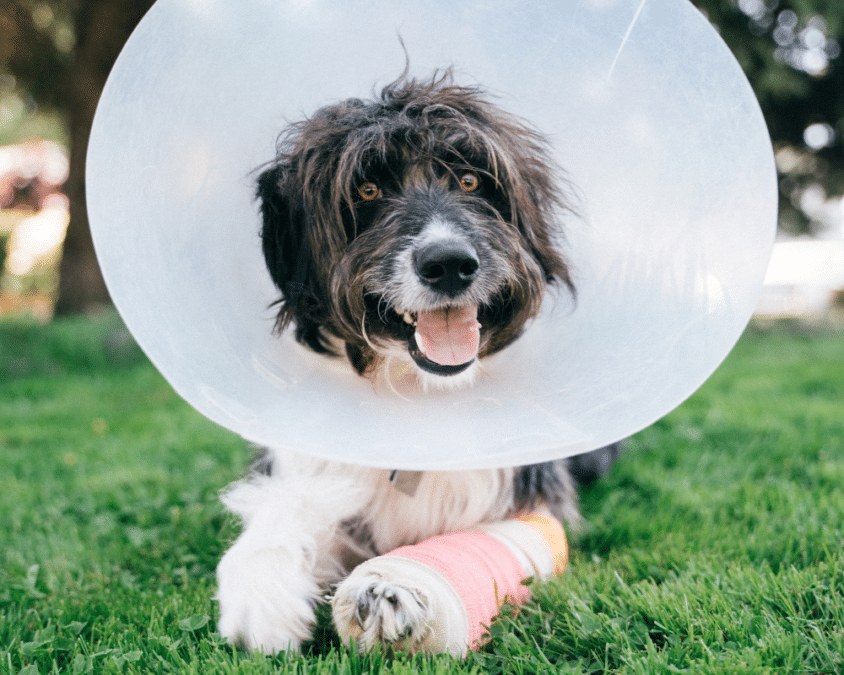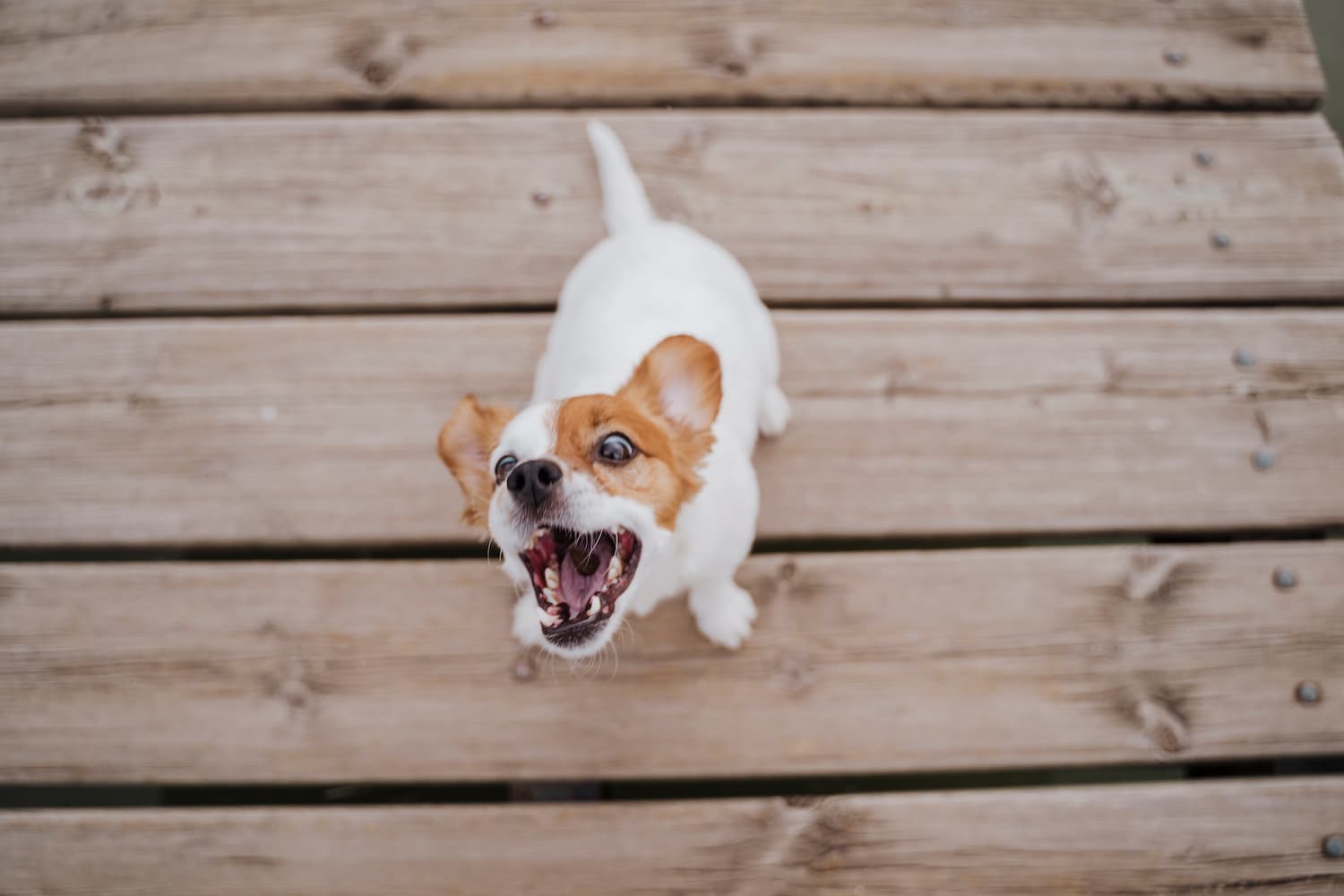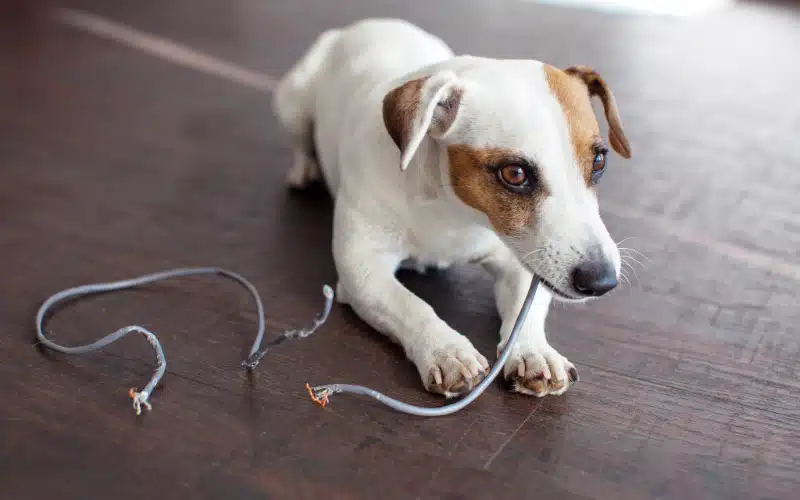
Common Orthopedic Injuries in Dogs
Most dogs love to run, jump, and race outside (or inside!), and as dog parents, it’s fulfilling to see them enjoy these healthy and fun activities. But this can all be brought to a screeching halt if an orthopedic injury occurs. Veterinary orthopedic injuries are any issues with bones, joints, tendons, or ligaments, and they can cause significant pain and mobility issues for your dog.
Here at AEHV, we often see dogs with orthopedic injuries, not only because we are a 24/7 animal emergency hospital, but also because we offer a variety of advanced surgical procedures to repair orthopedic problems. Here are some of the most common ones we see.
Fractures
A broken bone, or fracture, often occurs due to trauma such as being hit by a car, falling, or fighting with another animal. Fractures usually need emergency veterinary care since they are painful and are often combined with other traumatic injuries, like cuts or scrapes.
There are two main types of fractures in animals: incomplete or simple fractures and compound fractures.
Incomplete or simple fractures most commonly happen in young animals and involve a bone that has been partially broken. Simple fractures may be treated by placing a splint or a cast. A cast will conform to the injured limb and is made of padding and plaster, while a splint is made of plastic or aluminum. In both cases, you’ll need to return your pet to us frequently so we can check on healing, change their splint or cast, remove the cast or splint, and take follow-up X-rays to make sure the break has completely healed. In addition, you’ll need to provide lots of supervision at home to ensure the sprint or cast stays dry and that your pet doesn’t chew on it.
If your pet has a more severe fracture, also known as a compound fracture, surgery will be necessary in most cases. Bone plating is the most common fracture repair option and consists of using internal stainless steel or titanium plates held in place with screws while the bone heals. Another surgical option is an external fixation device, composed of multiple bars or rings that hold the injured bone in place during healing.
With all fractures, our goals are to stabilize and reposition the bone for optimal healing, promote a return to normal function, and reduce your pet’s pain. In all cases, our veterinarians will work with you and your primary veterinarian to ensure everyone is aware and comfortable with all parts of the healing process.
Cranial Cruciate Ligament Tear
A cranial cruciate ligament (CCL) tear is a knee injury in dogs, similar to an ACL tear in humans. It can happen in two ways; suddenly, with overexertion or vigorous exercise, or gradually, if a ligament is mildly injured and worsens because it isn’t rested.
CCL tears can happen to any dog but often occur in large, athletic dogs. In addition, some research shows that certain breeds are more susceptible to CCL tears, such as Rottweilers, Newfoundlands, Labrador Retrievers, Saint Bernards, Akitas, and Mastiffs.
CCL tears don’t naturally heal, so surgery is necessary to restore your pet’s mobility and ease their pain. Surgical options include Extra Capsular Knee Repair, Tibial Plateau Leveling Osteotomy (TPLO), and Tibial Tuberosity Advancement (TTA). These surgeries are different, but all aim to stabilize the knee joint and reduce pain. If your dog is limping or whining, and you suspect a knee injury, seek veterinary treatment immediately. Your veterinarian will take X-rays of your pet’s knee and recommend the best surgical approach.
Luxating Patella
The patella, or kneecap, typically sits above your dog’s hind leg knee in a small grove between thigh and shin. If the patella is luxated, the kneecap has become dislocated or moved out of its normal position. As a result, you may see your dog limping, skipping a step, or running on three legs. Luxating patellas generally happen in smaller breeds, and there is a genetic predisposition to this injury in Chihuahuas, Bichon Frises, Malteses, and French Poodles.
Treatment ranges from anti-inflammatory medication to surgery, depending on the severity of the condition. Your veterinarian will examine your dog and recommend the best course of treatment for your pet.
If your pet needs care for an orthopedic injury, you can be sure we will be there for them and you. If you have any questions or suspect your pet has an orthopedic injury, don’t hesitate to contact us.



